
ESG reporting software plays a vital role in simplifying, standardizing, and improving the efficiency of ESG reporting processes. But with ample providers to choose from—and a lack of familiarity with what the software does—navigating the market can be confusing.
This post will simplify matters through an overview of the top ESG reporting software providers of 2023. Before delving into who is doing what, we’ll present some background information to facilitate your understanding of what a reporting platform can do for you, including:
- Software benefits
- Features and functionalities
- Tips for overcoming implementation challenges
- Future trends to look out for
First, some context
ESG reporting goes beyond traditional financial reporting by focusing on non-financial metrics that encompass environmental stewardship, social impact, and governance practices. These include carbon emissions, resource usage, diversity and inclusion, supply chain management, executive compensation, and board diversity. In turn, organizations can gain a holistic view of their ESG progress, which helps communicate key impacts with stakeholders. By fostering transparency and accountability, ESG reporting offers numerous benefits, spanning the areas of risk mitigation, reputational capital, investor attractiveness, and long-term value creation.
While beneficial, ESG reporting is not without its challenges. Navigating multiple frameworks, evolving regulations, burdensome data collection—and the inherent difficulty of identifying material issues—are time and capital-intensive. For global enterprises with intricate supply chains, these issues tend to be compounded.
ESG reporting software is increasingly recognized as an ally in navigating these challenges. At its core, it serves as a powerful tool to streamline the arduous process of collecting, managing, and reporting ESG data. It not only enhances data accuracy and integrity, but enables organizations to benchmark their performance against industry peers, identify areas for improvement, and demonstrate progress over time.
A word on transparency
For transparency reasons, it’s important to note that Novisto is a solution in the ESG reporting software industry. We’ve produced this post with the intention of providing an informative and unbiased resource for navigating the ESG software landscape in 2023.
Many lists of ESG reporting software that are available online may be promotional in nature, where “solution positioning” is influenced by various commercial factors. It’s therefore crucial to note that the order in which the software solutions appear in this post does not reflect their quality, nor is Novisto endorsing any particular one.
Rather, our goal is to offer objective information to assist readers in their exploration of ESG reporting software options. We encourage you to conduct your own research and evaluations to determine the most suitable solution for your team.
In the following sections, we’ll delve deeper into the world of ESG reporting software. We’ll explore how it can help enhance transparency and accountability and enable better performance measurement. We’ll also examine its role in facilitating the integration of ESG considerations into business strategies, and provide guidance on how to overcome implementation challenges. Lastly, we’ll highlight the top ESG reporting solutions of 2023 as well as emerging tech trends to look out for.
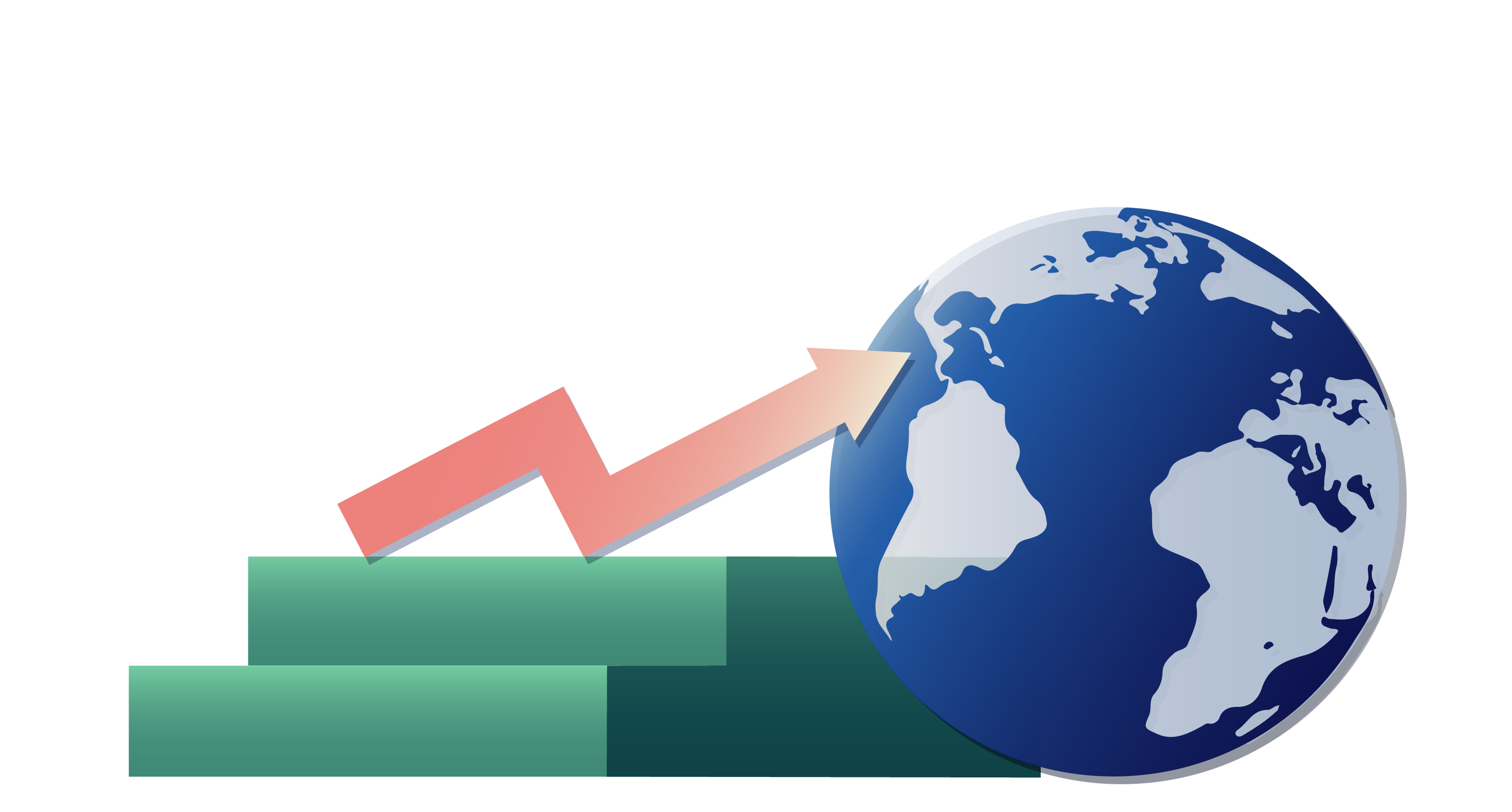
ESG reporting software 101
Definition and components
ESG reporting software is a specialized technology solution designed to streamline the process of collecting, analyzing, and reporting ESG data. It encompasses a range of tools and functionalities that enable organizations to manage their reporting efforts with greater ease.
Some of these functionalities include:
- Data collection: Ideally, the platform supports data automation through integrations with internal systems, data providers, and industry databases, ensuring efficient and accurate data capture. Overall, the collection of ESG data from various internal and external sources is facilitated.
- Data management: ESG reporting software allows for the storage, organization, and management of vast amounts of ESG data. It provides features to validate data, ensure data integrity, and maintain data quality over time.
- Data analysis and visualization: A reporting tool offers robust analytical capabilities to interpret and analyze ESG data. It enables organizations to identify trends, perform data-driven assessments, and generate visualizations, such as charts, graphs, and dashboards, to effectively communicate key insights.
- Reporting and disclosure: ESG reporting software simplifies the process of generating comprehensive ESG reports and disclosures. It enables organizations to create standardized reports according to widely recognized standards and frameworks, including the Global Reporting Initiative (GRI), Sustainability Accounting Standards Board (SASB), and Task Force on Climate-related Financial Disclosures (TCFD).
Key benefits
Implementing ESG reporting software offers many advantages, including:
- Efficiency and time savings: ESG software automates data collection, management, and analysis processes, reducing manual efforts and saving time. It enables organizations to generate reports more efficiently and frees up resources to focus on strategic sustainability initiatives.
- Accuracy and reliability: Software enhances the accuracy and reliability of ESG data by minimizing human error and ensuring consistent data capture and validation. It promotes data integrity and provides auditable trails to support transparency and accountability.
- Benchmarking and performance comparison: Software allows organizations to benchmark their ESG performance against industry peers and competitors. It provides valuable insights into relative strengths and weaknesses, enabling organizations to identify areas for improvement and learn from best practices.
- Stakeholder engagement: An ESG platform facilitates transparent communication with stakeholders, including investors, customers, employees, and regulators. It enables organizations to provide timely and comprehensive ESG information, fostering trust, and building stronger relationships.
- Strategic decision-making: ESG reporting software equips organizations with actionable insights derived from ESG data analysis. It enables informed decision-making, identifies areas where sustainability efforts can drive business value, and supports the integration of ESG considerations into strategic planning and risk management processes.
In the next section, we will explore how organizations can leverage ESG data management software for effective data collection and analysis to drive responsible business practices.
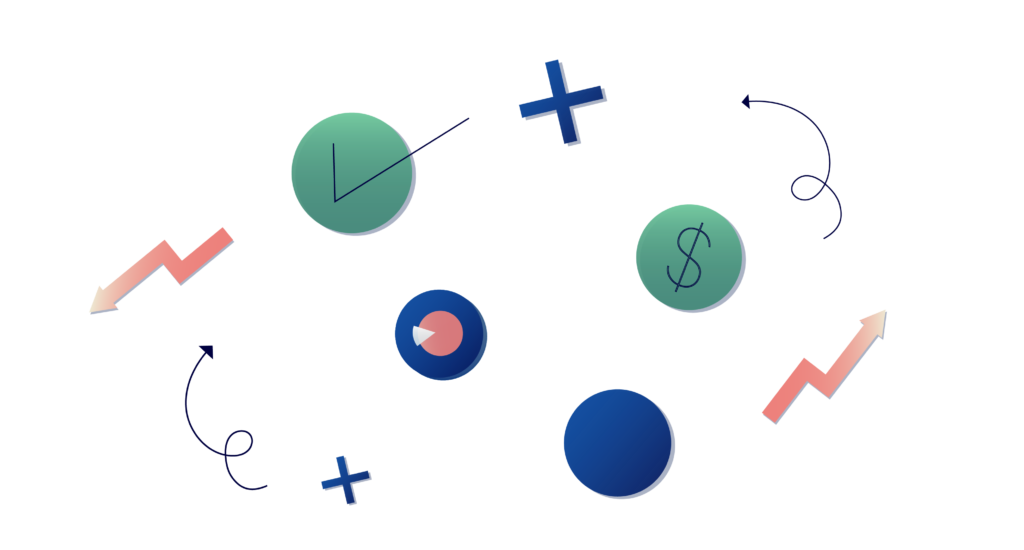
Leveraging ESG reporting software for data collection and analysis
Data collection methods and sources
Because effective data collection is a foundational activity for all ESG reporting, it’s critical to use technology to streamline this process. ESG reporting software offers multiple data collection methods and sources to ensure comprehensive and accurate data capture, including:
- Automated data integration: reporting platforms can integrate with various internal systems, such as financial management software, HR databases, and sustainability tracking tools, to automatically collect relevant ESG data. This integration reduces manual data entry, minimizes errors, and ensures data consistency.
- External data providers: ESG reporting software often integrates with external data providers specializing in ESG data, such as rating agencies, environmental databases, and social impact metrics platforms. These sources provide organizations with additional data points and benchmarks to enhance their reporting and analysis.
- Surveys and questionnaires: ESG platforms may include survey and questionnaire functionalities to collect data directly from stakeholders, such as employees, customers, and suppliers. These tools enable organizations to gather qualitative and quantitative insights on various ESG topics, enhancing the richness of their reporting.
Importance of standardized reporting frameworks
To ensure consistency and comparability, organizations often adhere to standardized reporting schemes when reporting their ESG performance. ESG reporting software supports these by providing templates and reporting guidelines aligned with recognized standards such as the GRI.
Consequently, organizations can:
- Enhance comparability: standardized frameworks enable organizations to compare their ESG performance with industry peers, identify leading practices, and drive continuous improvement. ESG reporting software facilitates the alignment of data collection and reporting processes with these frameworks, ensuring consistency and facilitating benchmarking.
- Meet regulatory requirements: ESG reporting is increasingly subject to regulatory mandates in many jurisdictions. By using ESG reporting software that aligns with recognized frameworks, organizations can streamline their reporting processes and meet regulatory requirements more efficiently.
- Increase stakeholder trust: standardized reporting frameworks provide stakeholders with a common language and structure for understanding ESG information. Leveraging a platform helps organizations generate comprehensive and consistent reports based on these frameworks, which enhances stakeholder trust and confidence.
Analyzing and interpreting ESG data
ESG reporting software offers robust analytical capabilities that enable organizations to derive insights from their ESG data. These analytical functionalities support data interpretation, trend identification, and performance assessment. Several popular ones include:
- Data visualization: allows organizations to create visual representations of their ESG data through charts, graphs, and interactive dashboards. These visualizations make complex data more accessible and facilitate the communication of key insights to stakeholders.
- Performance monitoring: enables organizations to track and monitor their ESG performance over time. It provides tools to set targets, measure progress, and identify areas for improvement, fostering a data-driven approach to responsible business practices.
- Scenario analysis: ESG reporting software may include scenario analysis capabilities, allowing organizations to assess the potential impact of different ESG scenarios on their business. This analysis helps identify risks and evaluate resilience, which informs strategic decision-making.
ESG reporting software for enhancing transparency and accountability
One of the key benefits of ESG reporting software is its ability to enhance transparency and accountability within organizations. By improving ESG disclosures and reporting, companies can more effectively communicate their ESG performance and initiatives to stakeholders.
Improving disclosures and reporting practices
ESG reporting software offers robust functionalities that help organizations streamline their disclosures and reporting processes. For example, it enables the generation of comprehensive reports that are aligned with recognized ESG standards (e.g., GRI, SASB). Moreover, it facilitates the integration of quantitative and qualitative data, allowing organizations to present a holistic view of their ESG efforts. By incorporating narratives, case studies, and stakeholder perspectives, teams can better contextualize overall ESG performance and provide a deeper understanding of their sustainable practices.
Additionally, reporting software enables the generation of real-time or periodic reports, ensuring that stakeholders have access to the most up-to-date information on the organization’s ESG performance. This timely and transparent reporting helps build trust and credibility among investors, customers, employees, and other stakeholders.
Ensuring accuracy and reliability of ESG data
Accurate and reliable data is crucial for meaningful reporting on diverse environmental, social, and governance activities. To this end, ESG reporting software is vital for ensuring data integrity throughout the reporting process. By automating data collection and validation, the software minimizes the risk of errors and inconsistencies that can arise from manual data entry.
Be mindful of built-in data validation mechanisms, such as data checks, range limits, and logical rules. These serve to identify and flag potential data anomalies, which helps maintain data accuracy and reliability; overall, this instills greater confidence in reported ESG metrics and indicators.
It’s also important to look out for data auditing capabilities, as these allow organizations to track changes and provide an audit trail of data revisions. Consequently, this promotes transparency and accountability, as stakeholders can review the data history and understand all updates or corrections that are made to the reported information.
Engaging stakeholders through transparent reporting
Transparent reporting is a crucial element of responsible business practices. ESG reporting software facilitates transparent communication with stakeholders by providing user-friendly interfaces and interactive data visualizations. For example, customizable dashboards, charts, and graphs illustrate performance trends. These visual representations make it easier for stakeholders to grasp key insights and understand the organization's progress in areas such as emissions reduction, diversity and inclusion, as well as supply chain sustainability.
Moreover, ESG reporting software often includes data sharing and publishing capabilities, allowing companies to distribute their reports to diverse stakeholders, including investors, customers, employees, and regulators.
Let's now examine how reporting technology supports performance measurement and tracks progress in driving responsible business practices.
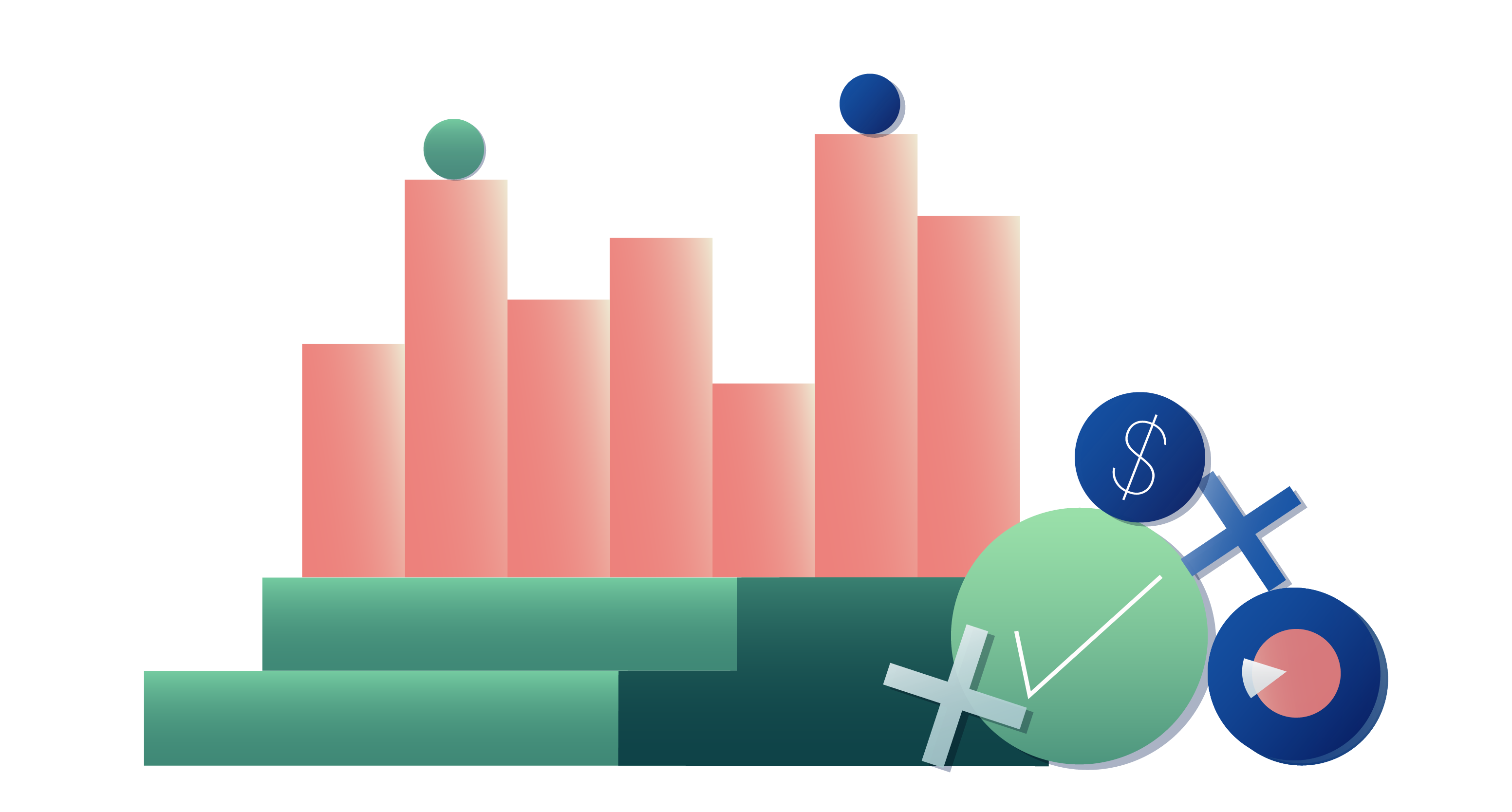
ESG reporting software for sophisticated performance measurement
By providing robust measurement tools and analytics capabilities, ESG reporting software allows organizations to effectively assess their progress, set targets, and monitor their ESG initiatives.
Measuring ESG performance indicators
ESG reporting software supports the measurement of key performance indicators (KPIs) across environmental, social, and governance dimensions. These indicators encompass metrics such as carbon emissions, energy consumption, employee diversity, labor standards, board composition, and ethical business practices.
Moreover, organizations are empowered to quantify their performance by collecting and consolidating data from diverse sources. With a centralized platform for tracking and reporting on ESG indicators, companies can showcase their performance and commitment to sustainability.
Tracking progress and setting targets
Setting targets and tracking progress are essential components of effective ESG management. ESG reporting software allows organizations to establish ESG goals and benchmarks, and then monitor their performance against these targets. Organizations can compare current and historical data to evaluate their progress over time. Moreover, by visualizing performance trends and analyzing data patterns, they can identify areas where further improvement is needed.
Benchmarking and comparing performance
ESG reporting software enables benchmarking and performance comparison against industry peers and best practices. By accessing external data sources and industry-specific ESG metrics, organizations can assess their performance relative to others in their sector.
Benchmarking provides valuable insight and helps organizations identify strengths and challenges. It also allows organizations to learn from industry leaders and adopt best practices to enhance their ESG performance.
In addition, ESG reporting software often incorporates performance scoring or rating features that evaluate a company's overall ESG performance based on predefined criteria. These scoring mechanisms enable organizations to understand their relative performance and track improvements over time.
By leveraging a reporting platform for performance measurement, organizations can gain a comprehensive understanding of their ESG performance, track their progress toward sustainability goals, and make data-driven decisions to drive responsible business practices.
In the next section, we’ll look at how software can bolster strategic decision-making and better alignment with ESG goals to drive change.
Facilitating business strategy
According to Ernst & Young, integrating ESG considerations into business strategies is vital for organizational resilience and creating long-term value. But this is complex on all fronts, requiring a gargantuan amount of effort from small—and already overburdened—ESG teams. The ultimate purpose of ESG reporting software is to facilitate this process through the creation of granular-level insight into the current state of your ESG journey. Consequently, leadership can feel more confident when making strategic decisions that impact the entire organization.
Incorporating ESG considerations into decision-making processes
Reporting software empowers organizations to embed ESG considerations into their decision-making frameworks and processes. By integrating ESG data and insights into strategic discussions, organizations can make more informed and responsible decisions that align with their sustainability objectives.
In particular, ESG reporting software can help identify risks and opportunities associated with environmental factors, social impacts, and governance practices. These insights enable organizations to assess the potential ESG implications of new investments, product launches, or operational changes, ensuring that decisions are aligned with long-term sustainability goals.
Aligning ESG goals with organizational objectives
Software facilitates the alignment of ESG goals with broader organizational objectives. By setting clear and measurable ESG targets within the platform, organizations can integrate sustainability objectives into their overall performance management systems.
Furthermore, it enables the monitoring and tracking of progress toward ESG goals, ensuring accountability and providing a basis for performance evaluation. The alignment of ESG goals with organizational objectives helps create a cohesive approach where sustainability becomes an integral part of your mission, vision, and strategy.
Driving change through actionable insights
There is growing evidence from around the world that ESG reporting helps organizations drive meaningful change.
ESG reporting software can accelerate this. By identifying trends, patterns, and areas for improvement, a reporting platform helps organizations better prioritize their sustainability initiatives and unlock new value. For example, it can highlight areas with the highest environmental impact or identify social issues that require attention within the supply chain. Armed with these insights, organizations can then implement targeted initiatives, such as energy efficiency programs, responsible sourcing practices, or community engagement projects.
In summary, by integrating ESG reporting software into business strategies, organizations can effectively incorporate ESG considerations into decision-making processes, align ESG goals with organizational objectives, and drive change through actionable insights. This integration ensures that sustainability becomes a strategic priority and that responsible business practices are embedded in the fabric of the organization.
In the next section, we’ll shed light on several implementation challenges and provide strategies for overcoming them.
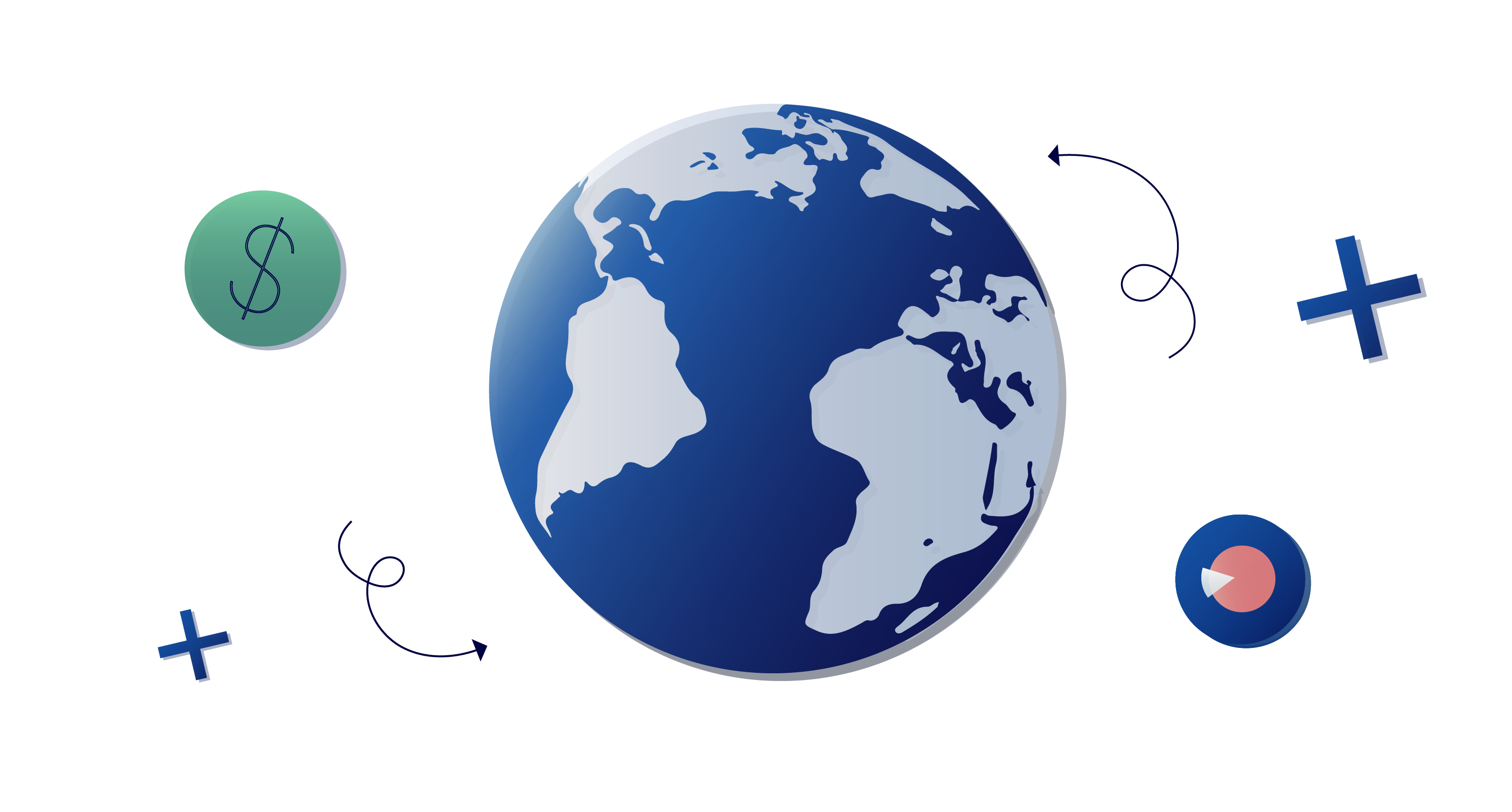
Overcoming implementation challenges
While implementing ESG reporting software affords numerous benefits, it also presents certain challenges. To make the most of your digital transformation, it's important to understand some common roadblocks to successful integration and utilization. Let’s turn to these now.
Data management and integration
One of the key challenges lies in effectively managing and integrating diverse data sources. Organizations may face difficulties in aggregating data from various systems and ensuring its accuracy and consistency.
To overcome this challenge, it’s crucial to establish clear data management processes. This includes identifying relevant data sources, establishing data collection protocols, and implementing robust data validation mechanisms within the software. Organizations should also consider integrating data automation tools and developing data governance frameworks to streamline the data management process.
Ensuring data security and privacy
ESG reporting software often involves handling sensitive data related to environmental impact, social practices, and governance. Protecting the security and privacy of this data is a critical concern.
To address this challenge, organizations should prioritize data security measures. This includes implementing encryption protocols, access controls, and regular data backups. Conducting data privacy assessments and ensuring compliance with relevant data protection regulations are also essential. Collaborating with IT and legal teams can help establish a robust data security framework for ESG reporting software implementation.
Building internal capacity and expertise
Effectively utilizing ESG reporting software requires the necessary knowledge and expertise within the organization. Employees may require training to effectively navigate the software, interpret ESG data and utilize the software's analytical features.
To overcome this challenge, organizations should invest in employee training and capacity-building initiatives. This includes conducting workshops, providing resources and documentation, and fostering a culture of data literacy and sustainability awareness. Collaborating with external experts or consultants can also help build internal capacity and ensure successful implementation.
By proactively addressing challenges related to data management, security, and internal capacity, organizations can more effectively navigate the implementation process. Overcoming these challenges enhances your organization's ability to leverage the full potential of the software and drive responsible business practices successfully.
Top ESG reporting software: 2023 market overview
In this section, we’ll explore a selection of the top ESG reporting software solutions currently on the market. Each software offers unique features, benefits, and real-world applications to support organizations in driving responsible business practices.
- Apiday: Apiday provides ESG reporting software that focuses on API integration for data collection, analysis, and reporting. The platform offers tools to connect with various data sources, automate data collection, and generate ESG reports. Apiday helps organizations streamline their ESG reporting workflows and leverage APIs for efficient data management.
- Brightly: Brightly offers ESG reporting software that combines sustainability data management with ESG reporting and stakeholder engagement. The platform provides tools for data collection, performance tracking, report generation, and sustainability communications. Brightly helps organizations streamline their ESG reporting processes and enhance stakeholder transparency.
- Conservice: Conservice offers ESG reporting software with a focus on sustainability and energy management. The platform provides tools for data collection, utility tracking, emissions reporting, and sustainability analytics. Conservice helps organizations optimize resource consumption and report on their sustainability performance.
- Diligent: Diligent provides governance, risk, and compliance solutions, including ESG reporting software. The platform offers features for data collection, materiality analysis, risk assessment, and ESG reporting. Diligent helps organizations integrate ESG considerations into their governance practices and enhance transparency.
- Enablon: Enablon offers ESG reporting software that facilitates data collection, analysis, and reporting on sustainability and ESG metrics. The platform provides features for stakeholder engagement, regulatory compliance, and ESG performance tracking. Enablon helps organizations streamline their ESG reporting processes and drive sustainable practices.
- ESGeo: ESGeo offers ESG reporting software with a focus on geospatial data analysis for environmental impact assessment. The platform integrates geospatial data with ESG metrics, allowing organizations to measure and report their environmental performance in a spatial context. ESGEO helps companies gain insight into their ESG performance from a geographic perspective.
- FigBytes: FigBytes offers ESG reporting software that combines sustainability data management with stakeholder engagement and strategy alignment. The platform provides features for data collection, impact assessment, target setting, and report generation. FigBytes helps organizations integrate sustainability into their strategic decision-making processes.
- Greenstone: Greenstone offers ESG reporting software that supports organizations in managing and reporting their sustainability performance. The platform provides modules for data collection, performance monitoring, target setting, and report generation across environmental, social, and governance dimensions. Greenstone helps companies track their sustainability progress and meet reporting requirements.
- MetricStream: MetricStream offers ESG reporting software that enables organizations to collect, analyze, and report their ESG performance. The platform provides features for data aggregation, validation, analysis, and reporting across ESG domains. MetricStream helps companies streamline their ESG reporting processes and ensure compliance with industry standards.
- Metrio: Metrio offers ESG reporting software that focuses on sustainability data management and reporting. The platform provides tools for data collection, performance tracking, stakeholder engagement, and ESG reporting. Metrio helps organizations measure, manage, and report their sustainability initiatives to drive positive impact.
- Novisto: Novisto is a comprehensive ESG reporting and management platform that helps organizations collect, analyze, and report ESG data. It offers features such as automated data collection, performance monitoring, target setting, and real-time reporting. Novisto enables companies to enhance transparency, engage stakeholders, and make data-driven decisions.
- OneReport: OneReport provides ESG reporting software that enables organizations to collect, analyze, and report their ESG data. The platform offers features for data consolidation, materiality assessment, report generation, and stakeholder engagement. OneReport helps companies streamline their ESG reporting processes and enhance transparency.
- OneTrust: OneTrust offers a comprehensive ESG software suite that supports organizations in managing and reporting their ESG performance. The platform provides modules for data collection, impact assessment, target setting, and ESG reporting aligned with recognized frameworks. OneTrust helps companies navigate ESG challenges and meet reporting requirements.
- Openpages: Openpages, part of IBM, offers ESG reporting software that focuses on risk management and compliance. The platform provides features for data collection, risk assessment, control monitoring, and ESG reporting. Openpages helps organizations identify and manage ESG risks, ensure compliance, and report on their ESG performance.
- Sphera: Sphera provides a comprehensive ESG management solution that includes ESG reporting capabilities. The platform offers features for data collection, performance monitoring, risk assessment, and ESG reporting aligned with recognized frameworks. Sphera helps organizations drive sustainable practices, manage ESG risks, and report on their performance.
- Workiva: Workiva provides a cloud-based ESG reporting platform that enables organizations to streamline their ESG reporting processes. The platform offers collaborative tools, data integration capabilities, and report generation features. Workiva helps companies manage and report their ESG data efficiently and accurately.
These solutions offer a range of features and capabilities to support organizations in their ESG reporting and sustainability initiatives.
If you’d like to explore other options, here’s a comprehensive, alphabetized list of what the market currently has to offer:
- AccelQ
- Accuvio
- Act Analytics
- Alcumus
- Apiday
- Carbon Intelligence
- Conservice
- Cority
- Data Gumbo and Topl
- Datamaran
- Diginex
- Diligent
- DisKlosure
- Ecodesk
- Ecometrica
- eFront Alternative Investment Solutions
- Enablon
- ESGeo S.r.l.
- ESG Robo
- FactSet
- FigBytes Inc.
- Financial Software Architects GmbH
- Fitch Group, Inc.
- Gensuite
- GIST
- Goby
- Goodera
- Greenstone
- IHS Market
- IntegrityNext
- Integrum ESG
- ISS
- iSystain
- Manifest Climate
- Measurabl
- MESA
- MetricStream
- Metrio
- Moody's ESG Solutions
- MSCI
- NAVEX Global
- Novisto
- OneReport
- OneTrust
- ONYEN Corporation
- Openpages
- Oren
- PRI Collaboration Platform
- ProcessMAP Corporation
- Quentic
- Reporting 21
- RepRisk
- Rio ESG Limited
- Robeco
- Schneider Electric United States
- Seneca ESG
- ServiceNow
- SicaSoft
- Sinzer
- Solidatus
- Sphera
- SS&C
- SupplyShift
- Sustainalytics
- Tennaxia
- Tofuture
- Turnkey
- UL EHS Sustainability
- WeSustain
- Workiva
- World Wide Generation Ltd
- Worldfavor
Please note that the inclusion of a software solution in the above list doesn’t constitute an endorsement or recommendation. It’s essential to conduct thorough research to evaluate which software best suits your organization's specific needs and requirements.
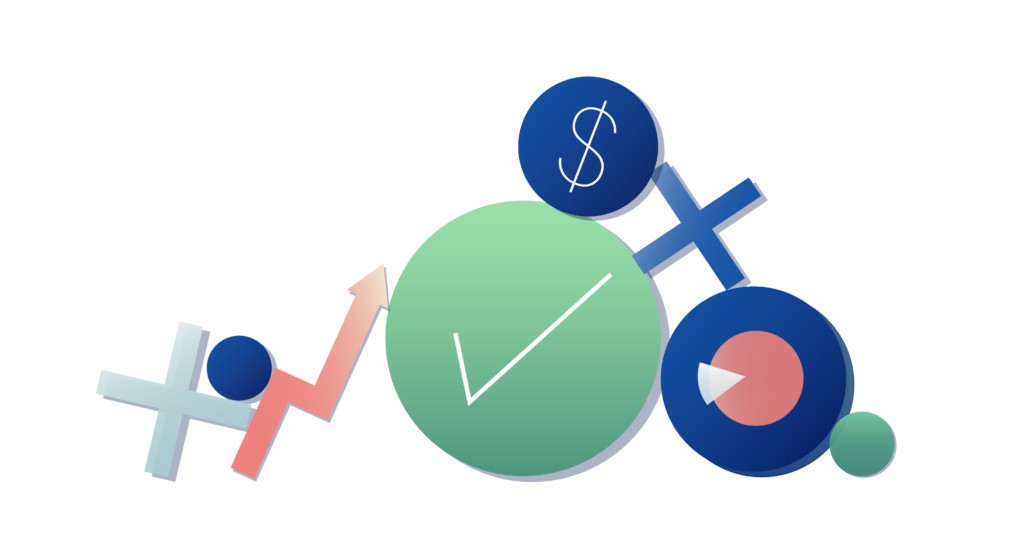
Future outlook
As the ESG reporting landscape continues to shift, organizations are struggling to keep up with increasing demands for transparency, accountability, and sustainable practices. Let’s take a look at some emerging trends in ESG software technology and how these can help navigate the current state.
Integration of AI and machine learning
Artificial intelligence (AI) and machine learning (ML) are increasingly being integrated into ESG tools. These technologies can automate data collection, improve data quality and accuracy, and provide advanced analytics capabilities. AI and ML algorithms can also analyze large datasets, identify trends, and uncover insights to enhance ESG reporting processes. With the power of AI and ML, organizations can streamline their ESG reporting workflows and derive more meaningful insights from their data.
Enhanced data visualization and reporting capabilities
Data visualization and reporting capabilities are becoming more robust. Organizations can now leverage interactive dashboards, visual charts, and graphs to present their ESG data in a more compelling and accessible manner. Advanced reporting features allow for customizable reports that cater to the specific needs of stakeholders. These enhancements enable organizations to effectively communicate their ESG performance and progress towards sustainability goals.
Integration of non-financial and financial reporting
ESG reporting software is increasingly incorporating non-financial and financial reporting. This integration allows organizations to analyze and report on the financial implications of ESG factors. By aligning financial and non-financial reporting, companies can gain a more comprehensive understanding of their overall performance and demonstrate value.
Focus on supply chain transparency and ESG performance
As supply chains become increasingly complex and interconnected, there’s greater pressure to promote supply chain transparency. Consequently, organizations are seeking tools that enable them to track and report on the sustainability performance of their suppliers. ESG reporting software is evolving to provide features such as supplier data collection, risk assessment, and supplier sustainability scorecards. This focus on supply chain transparency allows organizations to identify and address ESG risks and opportunities throughout their value chains.
Integration with ESG frameworks and standards
ESG reporting software is increasingly aligning with recognized ESG frameworks and standards, such as the GRI, SASB, and TCFD. This integration ensures that organizations can disclose performance in a standardized and comparable manner. Ultimately, by adhering to established reporting schemes, organizations can enhance the credibility and transparency of their ESG reporting.
Expanded scope to social and governance factors
While environmental factors have traditionally received the most attention, a growing body of thought leadership encourages organizations to pay more attention to the social and governance parts of the equation.
In line with this trend, ESG reporting software is expanding its scope to incorporate a broader range of social and governance metrics, such as diversity and inclusion, human rights, labor practices, and board diversity. This expansion reflects a growing consensus on the importance of a holistic approach to corporate sustainability.
As the demand for ESG reporting and sustainability management continues to grow, software will play an increasingly critical role in helping organizations meet these expectations. By leveraging emerging technologies, organizations can drive responsible business practices, enhance stakeholder trust, and contribute to a more sustainable future.
Let's drive sustainability
In summary, ESG reporting software drives responsible business practices by enabling organizations to collect, analyze, and report on their environmental, social, and governance performance. By leveraging a software solution, organizations can enhance transparency, meet regulatory requirements, engage stakeholders, and make data-driven decisions to foster sustainability.
When choosing from among the many options, you’ll need to carefully assess your unique needs and requirements. What’s right for one isn’t right for all. Pay special attention to data collection and integration capabilities, reporting functionalities, compatibility with industry frameworks, and the ability to align with emerging trends in ESG reporting.
Novisto’s ESG data management and reporting platform empowers organizations to streamline their reporting processes and drive responsible business practices. With automated data collection, real-time reporting, performance monitoring, and stakeholder engagement tools, Novisto is helping global brands transform their ESG data management—with precision.
To experience the power of Novisto firsthand, we invite you to sign up for a demo. Our team will provide a personalized walkthrough of the software, demonstrate its features, and answer any questions you may have.
Book your demo today.
